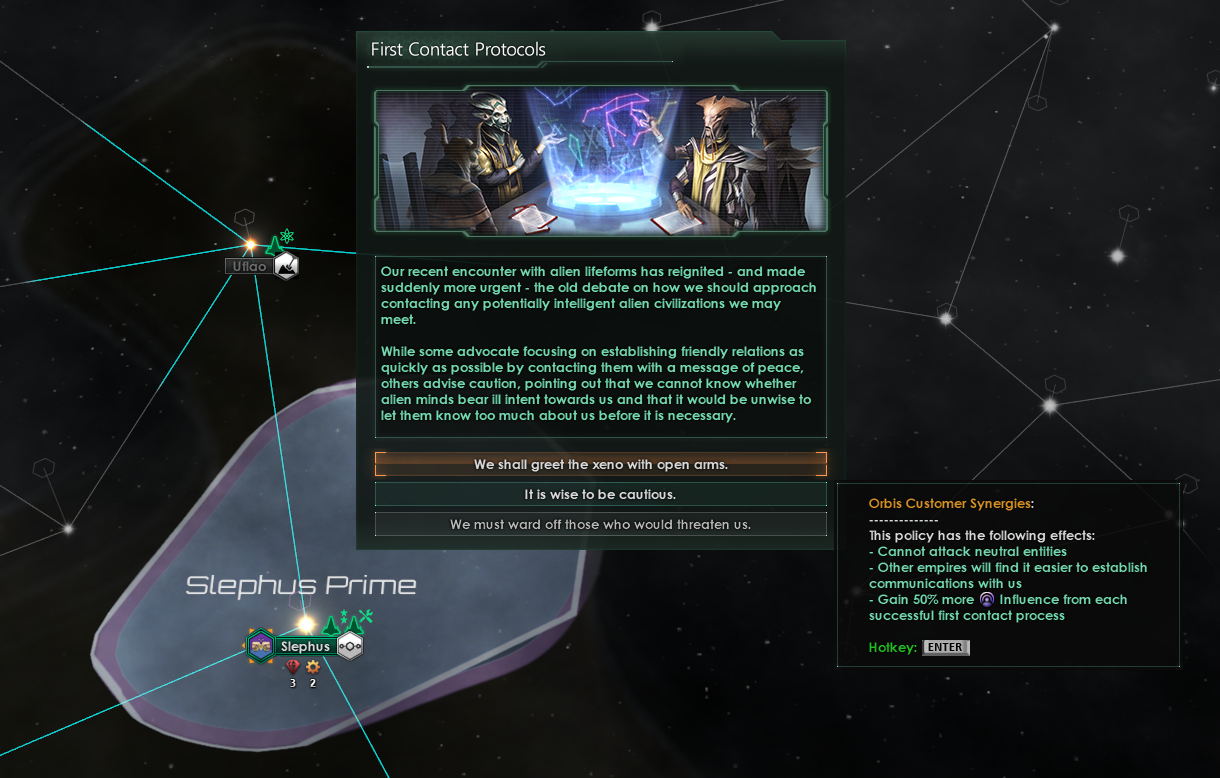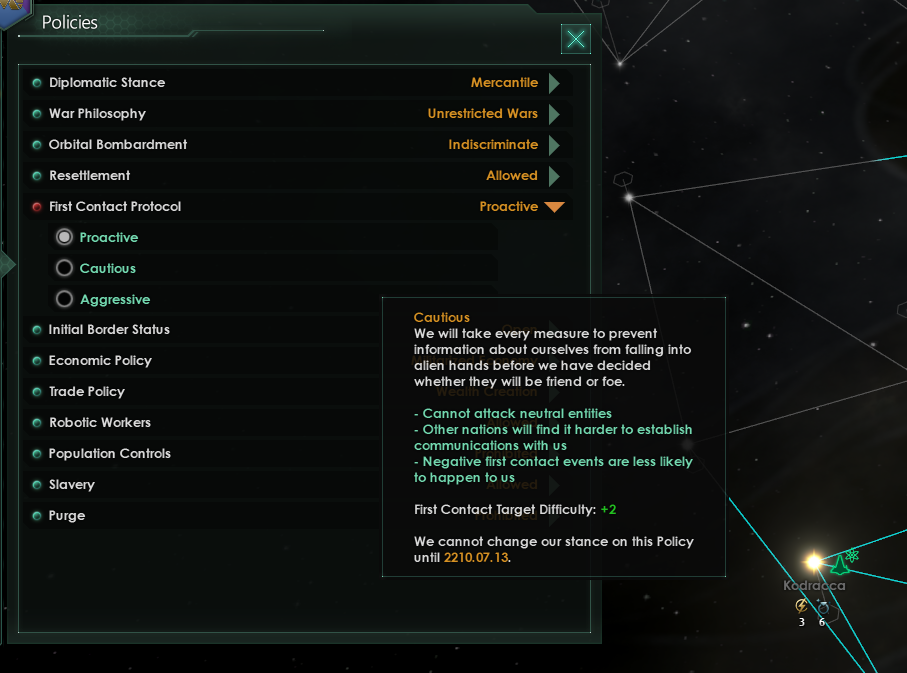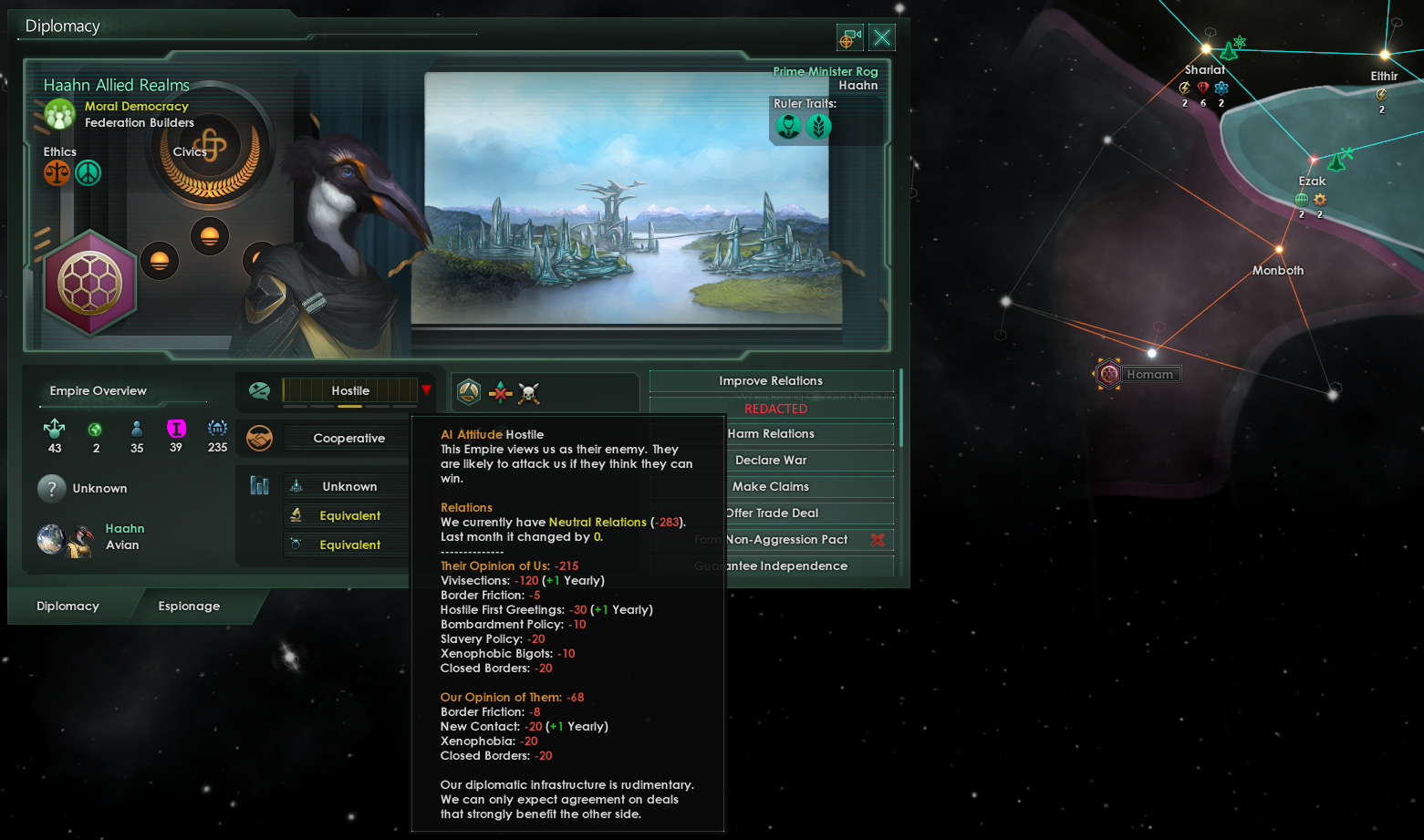Stellaris Dev Diary #195: Happy Holidays & Help Stellaris
We’re approaching the end of 2020 and we in the Stellaris team wish you the happiest of holidays! This year has certainly been a challenging one for many reasons, but under the circumstances we’re still fortunate to be working in an industry that has been relatively untouched by world affairs. All we can do is be thankful for what we have, and try to help those around us.
We’re also thankful for the many fans that support us and are excited for the things that we have in store for you all. There’s still a few months of development left, and starting next year our dev diaries will be showcasing the remaining features. I hope you’ll be as excited to read them as we’ll be about talking about them!
While Federations was about cooperation and order, our next upcoming addition to Stellaris is sure to provide a different experience. The fate of the galaxy may be in your grappling appendages, and to what end will you guide it?
Although those hints may be subtle, what I can unveil is the topic of the dev diaries we’ll be starting the new year with. Many of you have astutely noticed that we have been showing clear indications of Espionage being added to the game, and that is indeed what we’ll be talking about in the beginning of 2021.
 Work in progress. Game development is fun, and sometimes during development, unintentional circumstances can occur.
Work in progress. Game development is fun, and sometimes during development, unintentional circumstances can occur. I won’t reveal too much about Espionage yet, but I can say that it will tie heavily into Intel and information gathering, but also other things. Similar to how we work with a lot of other systems (like archaeology), we usually combine the new game system with fun and interesting content. We don’t want a feature where you just perform an action and wait until you get a result – we want there to be events and random occurrences along the way.
Starting in the new year we’ll be talking about all of these new features, covering everything from spy networks, to operations, assets and how they tie into Intel. We’re very excited to soon be able to share the progress our team has made.
A lot of teamwork goes into making new features for a game, and each profession contributes to different parts. We’re currently looking for a lot of talent to add to our strength, so that we can keep improving Stellaris and making more new cool content. We have great ambitions for the future, and we need to bolster our ranks!
We’re currently looking for: Senior Producer - Do you want to help us run our game projects?
Senior Game Programmers - Do you want to help us implement cool new features in the game? Do you want to help us with performance, AI or is something else your speciality?
Mid-level Game Programmers - Do you want to help us implement cool new features in the game? Do you want to help us with performance, AI or is something else your speciality?
Lead Artists - Do you want to help us lead our artists and make sure we can deliver the right assets at the required quality?
Tech Artist - Do you want to be the interface between our artists and our programmers? Do you want to help us create the correct tools so that your colleagues have an easier time with their tasks?
Senior Concept Artists - Do you want to help us add more cool things to the game? We need more people to help us draw things like space dragons, cool new ships or JEFF.
Senior 3D Artist - Do you want to realize the concepts drawn by your colleagues, and perhaps build ships or megastructures?
If any of those roles sounds interesting and well-suited for you, or if you know someone who might be, please don’t hesitate to apply!

Our next dev diary will be on January 14th, but until then: Happy Holidays and stay safe out there! Happy New Year, and let’s make 2021 a great year!
 The information on the empire to the galactic south-east is very limited. We can see their homeworld and the borders explored by our science ship.
The information on the empire to the galactic south-east is very limited. We can see their homeworld and the borders explored by our science ship. An alien empire recently established communications with us. Friends..?
An alien empire recently established communications with us. Friends..? Depending on things like diplomatic pacts, trust or other things, your Intel will grow over time.
Depending on things like diplomatic pacts, trust or other things, your Intel will grow over time. Intel, now in the scent of working from home for months.
Intel, now in the scent of working from home for months.



 First Contact Protocol Policy options.
First Contact Protocol Policy options.






 Let’s agree to disagree.
Let’s agree to disagree.
